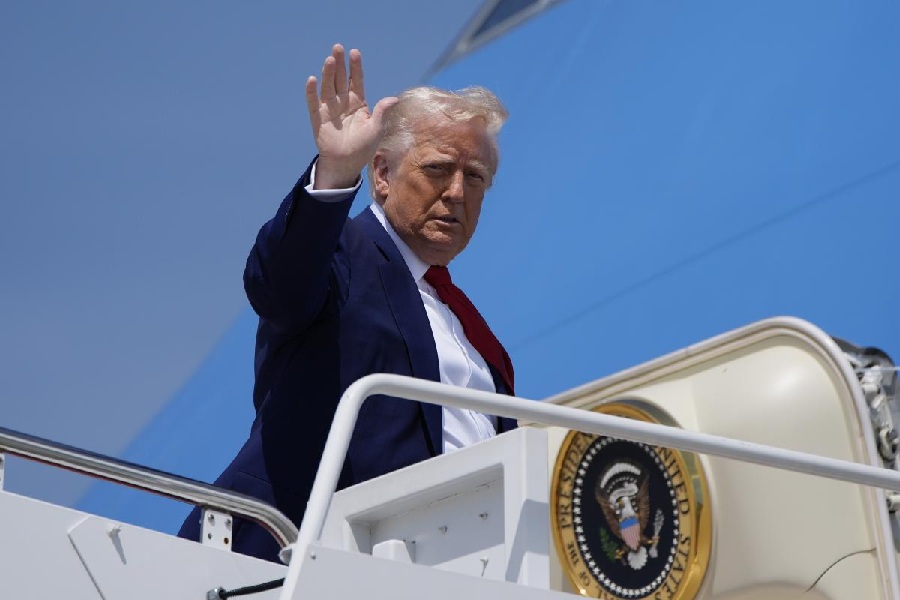Donald Trump, the president of the United States of America, has given himself two weeks to make a decision that could well determine his foreign policy legacy: whether or not to join Israel in attacking Iran. His self-imposed timeline, announced on Thursday, follows a sharp turn in his rhetoric towards Iran. Mr Trump, who only days earlier had said that the US was close to clinching a nuclear deal with Iran, has, in recent days, effectively threatened that the US could assassinate Iran's supreme leader, Ayatollah Ali Khamenei, whenever it wanted to and has sought an unconditional surrender from Tehran. He has largely aligned himself with the argument of the Israeli prime minister, Benjamin Netanyahu, that Iran was close to building a nuclear bomb and that Tehran's atomic energy programme needed to shut down completely. This, even though the director-general of the United Nations’ nuclear watchdog, the International Atomic Energy Agency, has made it clear that it had no evidence that Iran had any programme to develop nuclear weapons.
In many ways, Mr Trump's back and forth on whether or not to involve the US in a war with Iran reflects the pulls and the pressures within his domestic support base — the Make America Great Again coalition. Mr Trump campaigned for the presidency promising to end wars and keep the US out of new ones. He has been a staunch critic of the Iraq war and those who supported it. In recent days, as pressure from Israel has grown on the US to supply it with bunker buster bombs and the bombers needed to drop them, many leading MAGA voices have publicly cautioned
Mr Trump against striking Iran. They include Mr Trump's former adviser, Steve Bannon, the conservative commentator, Tucker Carlson, and the Congresswoman, Marjorie Taylor Greene. Members of the Congress on the Left and the Right have both introduced bills to stop Mr Trump from going to war without seeking the Congress’s approval.
If Mr Trump ignores them and goes ahead with a bombing campaign against Iran without firm evidence that Tehran is indeed close to building nuclear weapons, he will be leading the US and the world down the same path that he once condemned — the parallels with Iraq and its invasion by the US in 2003 will define how he will be remembered globally. In recent days, Mr Netanyahu has also openly called for regime change in Tehran and Mr Trump's threats against
Mr Khamenei have also revived memories of another traumatic chapter in Iran's modern history. In 1953, the US and the United Kingdom orchestrated a coup to remove Iran's democratically-elected prime minister, Mohammad Mosaddegh. Over seven decades later, another attempt at regime change would not only be brazenly illegal but also add to the prevailing instability in a region already torn by multiple wars. There is only one clandestine nuclear power in the Middle East that is constantly threatening all of its neighbours. That country is not called Iran.










